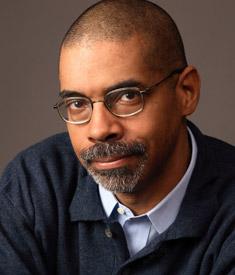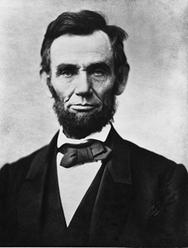 Stephen Carter is the William Nelson Cromwell Professor of Law at Yale, where he has taught for almost 30 years. He is also the author of seven acclaimed works of nonfiction and four novels.
Stephen Carter is the William Nelson Cromwell Professor of Law at Yale, where he has taught for almost 30 years. He is also the author of seven acclaimed works of nonfiction and four novels.
Among his nonfiction books are The Culture of Disbelief: How American Law and Politics Trivialize Religious Devotion (1993); Civility: Manners, Morals, and the Etiquette of Democracy (1998); and God's Name in Vain: The Wrongs and Rights of Religion in Politics (2000).
His first novel, The Emperor of Ocean Park (2002), spent 11 weeks on the New York Times bestseller list. His fifth novel, The Impeachment of Abraham Lincoln, will be published in July 2012 by Knopf.
Where did the idea for The Impeachment of Abraham Lincoln come from?
I've wanted to write this novel for years. I have always been fascinated by Lincoln. I consider him our greatest president. Over the years, historians have speculated about what might have happened had he survived Booth's bullet. I thought it would be fun to build a legal thriller around that question.
How much research did you have to do before started the book, and how long did it take you to write it?
For me, a lot of what's fun about writing thrillers is getting the background facts right. I have been an amateur Lincoln buff since I was a child. But to set a novel in his era, I had to spend a lot of time reading history, studying newspapers and speeches and letters, and looking at photographs. I like to be as accurate as possible in my novels, so I looked into everything from the location of the Washington city jail in 1867 to the addresses of the popular brothels. Once I found a place for my protagonist to live, I had to figure out what she would see out her window. And, of course, I had to study how impeachment trials are run. I suppose it took me, overall, about five years or so.
Why is Abigail Canner your central character in a world filled with such rich historical characters?
Every serious novel needs a protagonist. In the case of a book "about" Lincoln, the protagonist should be both a witness to and a participant in great events. I chose Abigail because I wanted an outsider perspective. Thus I invented this smart, ambitious, educated black woman who has the audacity to believe that she might become a lawyer--this at a time when there were no female lawyers admitted to practice in the United States, and no more than perhaps half a dozen black ones.
What is fun in a thriller is to thrust an ordinary person into the realm of mystery and violence, and to see how she responds. Abigail lets me do that. We meet Lincoln and other powerful men and women of the period, but we see them through Abigail's eyes. She also allows us a window into the middle-class black community of the 1860s--a group that existed, and was fairly large, even though few people nowadays seem aware of the fact.
Lincoln is something of a minor character in the background of the novel. Was it always this way, or did you think he'd be more of a major character when you started out?
I always wanted Lincoln to be in the background. The two great events of the foreground--the murder mystery and the impeachment trial--work much better if the story doesn't have to pass through the White House every chapter. Part of what I am trying to illuminate in the novel is how the great and powerful of the era actually viewed Lincoln, who was never popular in Washington, even within his party.
How difficult was it to orchestrate all these characters and plots into a unified whole?
That's more for the readers to say, but I think the mystery works well, and those who have read it so far tell me that the impeachment trial keeps them guessing. The trickiest part was trying to get the personalities of my many real characters right. Indeed, this constituted a major part of the research. For example, there is a chapter built around August Belmont, one of the wealthiest men in the nation during the postwar years. The views he expresses there are largely drawn from his correspondence and speeches.
 In the end, did your feelings for Lincoln or other historical figures at that time change?
In the end, did your feelings for Lincoln or other historical figures at that time change?
Only in the sense that the research increased my respect, never small, for the enormous skill with which Lincoln navigated shoals far more deadly than those faced by any president before or since.
Do you think the novel offers up any lessons for America today?
Let me emphasize that the novel is first and foremost a legal thriller and murder mystery. I write fiction to entertain, and I hope my fans will enjoy this one as much as they have the others.
Still, I suppose that at some level I also wanted to remind the readers, in our hyper-political era, how much controversy and division Lincoln's acts engendered. The list of charges at my hypothetical impeachment trial are largely based on things the 16th president actually did. Nowadays, partisans on both sides tend to cry "impeachment" whenever a president does something they don't like. This is one of the many silly features of our politics. Lincoln's assumptions of power--the suspension of habeas corpus, the shuttering newspapers and arresting of journalists, and so much more--dwarf anything done by any recent chief executive.
Lincoln believed that the emergency facing the nation during the Civil War justified his breaches of law. Did they? I leave that question to be answered by the reader.
As a full-time law professor, how do you find the time to research and write so many books?
Remember, most of my books are nonfiction, and they are connected to my scholarly work. As to my novels--I write them in spare time, as a diversion. I suppose that if I wrote fiction full time, I would produce a lot more of them. But I cannot imagine not teaching and writing about law!
How do you see this novel in the context of your other novels and nonfiction works?
My fascination with Lincoln has long been obvious to readers of my nonfiction, where he keeps cropping up, and to my students, who are probably sick of hearing him quoted. I have also long been writing scholarship on executive power in general and the war power in particular. So I suppose you are seeing here a merger of several of my interests.
Do you think you'll do another historical novel?
I'm at work on a thriller about the Cuban Missile Crisis of 1962--also told from the point of view of a black woman who has an insider's perspective on great events. --Tom Lavoie

